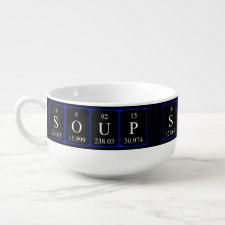
Authors: Ceglowski M, Kurczewska J, Ruszkowski P, Liberska J, Schroeder G
Article Title: The influence of cross-linking agent onto adsorption properties, release behavior and cytotoxicity of doxorubicin-imprinted microparticles.
Publication date: 2019
Journal: Colloids and Surfaces B: Biointerfaces
Volume: 182
Article Number: 110379.
DOI: 10.1016/j.colsurfb.2019.110379
Alternative URL: https://www.sciencedirect.com/science/article/pii/S0927776519305132
Abstract: Molecularly imprinted polymers (MIPs) are synthetic polymers that possess cavities selective towards their molecular templates and have found many applications in separation science, drug delivery, and catalysis. Here, we report the synthesis of doxorubicin-imprinted microparticles cross-linked with two different compounds (ethylene glycol dimethacrylate or trimethylolpropane trimethacrylate) and examination of their physicochemical properties. During the synthesis methacrylic acid was used as functional monomer and 2-hydroxyethyl methacrylate was added into polymerization mixture to increase hydrophilicity of the obtained materials and therefore improve interactions with aqueous release medium. The influence of initial concentration and contact time onto doxorubicin adsorption by obtained MIPs microparticles have been investigated. The microparticles obtained using ethylene glycol dimethacrylate as a cross-linker showed 3 times higher adsorption properties towards doxorubicin, than the ones obtained using trimethylolpropane trimethacrylate cross-linker. The release kinetics of doxorubicin from drug-loaded MIPs microparticles has been proven to be dependent upon cross-linker used and pH of the release medium. For drug-loaded MIPs microparticles obtained using both cross-linkers the IC50 values measured for cancer cell were comparable to the ones measured for pure doxorubicin, whereas the cytotoxicity towards normal HDF cell lines was lower
Template and target information: doxorubicin
Author keywords: Molecularly imprinted polymers, drug delivery, microspheres, doxorubicin, Cell culture



Join the Society for Molecular Imprinting

New items RSS feed
Sign-up for e-mail updates:
Choose between receiving an occasional newsletter or more frequent e-mail alerts.
Click here to go to the sign-up page.
Is your name elemental or peptidic? Enter your name and find out by clicking either of the buttons below!
Other products you may like:
 MIPdatabase
MIPdatabase









